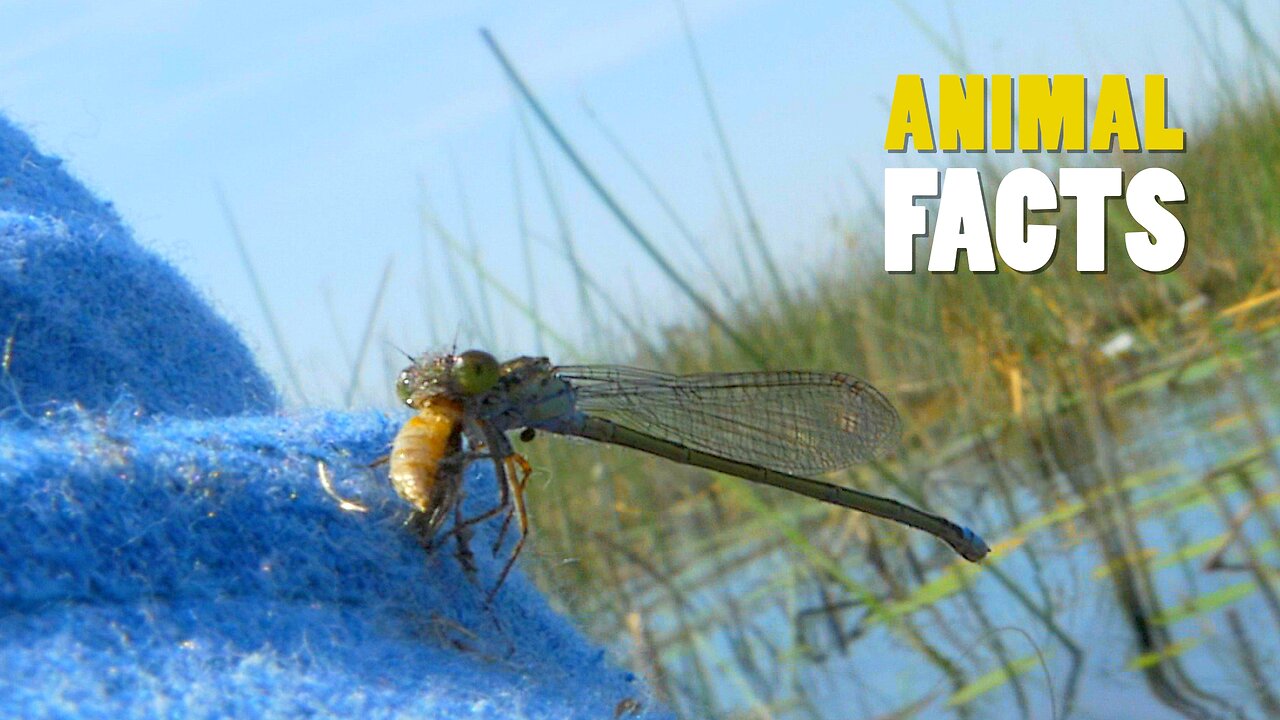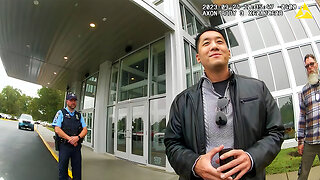Premium Only Content

The Incredible Dragonfly | Nature’s Aerial Acrobat
For video production services contact [email protected] https://www.inspiredrisk.com/
Did you know that dragonflies are some of the most skilled flyers in the insect world? With two pairs of wings that can move independently, dragonflies can hover in place, fly backward, and even make sharp turns at high speeds! They can reach speeds of up to 35 miles per hour, making them one of the fastest flying insects. Dragonflies are also excellent hunters. They eat mosquitoes, flies, and other small insects, using their incredible vision to spot prey from up to 100 feet away. Their large compound eyes give them nearly 360-degree vision, allowing them to track their prey in midair. With their fascinating flight skills and essential role in controlling pest populations, dragonflies are truly nature’s aerial acrobats!
If you’re willing and able, here are just some actions you can take for Conservation, Climate Change and Animal Welfare;
. Adopt a Plant-Based Diet: Reducing or eliminating animal products lowers demand for factory farming, which is a major driver of deforestation, habitat destruction, animal cruelty and greenhouse gas emissions.
. Support Sustainable Brands and Companies: Choose products and services from companies that prioritize sustainability, ethical sourcing, reducing emissions, minimizing waste and animal welfare in their practices, such as those with certified Fair Trade, organic, or cruelty-free labels.
. Advocate for Wildlife Protection Laws: Support and raise awareness about policies that protect endangered species, regulate hunting, and safeguard critical habitats from destruction through legal means.
. Reduce Energy Consumption: Cut down on electricity and fuel use by investing in energy-efficient appliances, utilizing renewable energy sources, and adopting green practices like switching off lights when not in use and reducing car travel.
. Plant Trees and Support Reforestation Efforts: Trees are vital in the fight against climate change by absorbing carbon dioxide, protecting biodiversity, and supporting wildlife habitats. Participate in local tree-planting initiatives or donate to organizations focused on reforestation.
. Conserve Water: Freshwater is a limited resource, and conserving water helps maintain critical ecosystems and supports agricultural and wildlife needs. Use water-efficient fixtures, avoid wasting water, and support organizations that protect freshwater ecosystems and wetlands, which are vital for both wildlife and human communities.
. Educate and Raise Awareness: Spread knowledge about conservation, animal welfare, and environmental issues. Sharing information on social media or in your community can inspire others to take action.
. Reduce, Reuse, Recycle: Minimize waste by opting for reusable products, recycling materials, and choosing items with minimal packaging to reduce landfill waste and conserve natural resources.
. Volunteer for Conservation Projects: Donate time to wildlife rescue centers, local environmental groups, or global conservation organizations. Direct involvement in conservation efforts can have a meaningful impact on local ecosystems.
. Choose Eco-Friendly Travel: When possible, opt for sustainable travel options like walking, biking, or using public transport. When traveling long distances, support eco-conscious tourism operators that prioritize conservation and minimize their carbon footprint.
. Advocate for Climate Policy: Contact local representatives, vote for pro-environmental policies, and join climate advocacy groups pushing for legislative change.
. Compost: Start composting organic waste to reduce landfill contributions and improve soil health.
. Support Sustainable Tourism: Travel responsibly by choosing eco-friendly tours and hotels that prioritize sustainability and wildlife protection.
. Support Wildlife Corridors: Advocate for and support the creation of wildlife corridors that help animals move safely through their habitats.
. Participate in Clean-Up Initiatives: Join local efforts to clean up beaches, rivers, or parks to remove trash that can harm wildlife.
. Practice Sustainable Gardening: If you're growing a garden, use eco-friendly techniques that reduce pesticide use and support biodiversity.
. Adopt, Don’t Shop: Consider adopting rescue animals instead of buying from breeders or pet stores, helping reduce the demand for animal breeding and the number of animals in shelters.
-
 38:32
38:32
Code Blue Cam
2 hours agoHow Police Stopped a Potential Church Massacre...
22 -
 2:04:24
2:04:24
Steven Crowder
4 hours agoShutdown Backfire: Dems Are In Major Trouble While Trump Takes on the World in Asia
298K226 -
 LIVE
LIVE
Sean Unpaved
1 hour agoBLUE JAYS SHOCK THE WORLD: Series Tied!, NFL Deadline Meltdown + NBA's Cup Chaos Begins
68 watching -
 1:05:30
1:05:30
The Rubin Report
3 hours agoZohran Mamdani Forced to Explain Why He Lied as Media Turns on Him
25K36 -
 LIVE
LIVE
Dr Disrespect
2 hours ago🔴LIVE - DR DISRESPECT - BATTLEFIELD 6 - REDSEC DUOS - WIN WIN WIN
2,130 watching -
 LIVE
LIVE
Side Scrollers Podcast
3 hours agoAngry Joe’s TDS/Halo Meltdown + Console War is OVER + Twitch Staff FIRED + More | Side Scrollers
703 watching -
 LIVE
LIVE
The Shannon Joy Show
2 hours agoThe Persecution Of Reiner Fuellmich - The World’s Original COVID Whistleblower! With Human Rights Advocate Seba Terribilini
229 watching -
 1:25:13
1:25:13
The Mel K Show
2 hours agoMORNINGS WITH MEL K -Declass Tidal Wave: The Unstoppable March Towards Justice - 10-29-25
17.5K7 -
 1:01:54
1:01:54
Grant Stinchfield
2 hours agoGAVIN NEWSOM FOR PRESIDENT?! AMERICA’S NEXT DISASTER IN WAITING!
16.7K7 -
 LIVE
LIVE
LFA TV
16 hours agoLIVE & BREAKING NEWS! | WEDNESDAY 10/29/25
2,715 watching